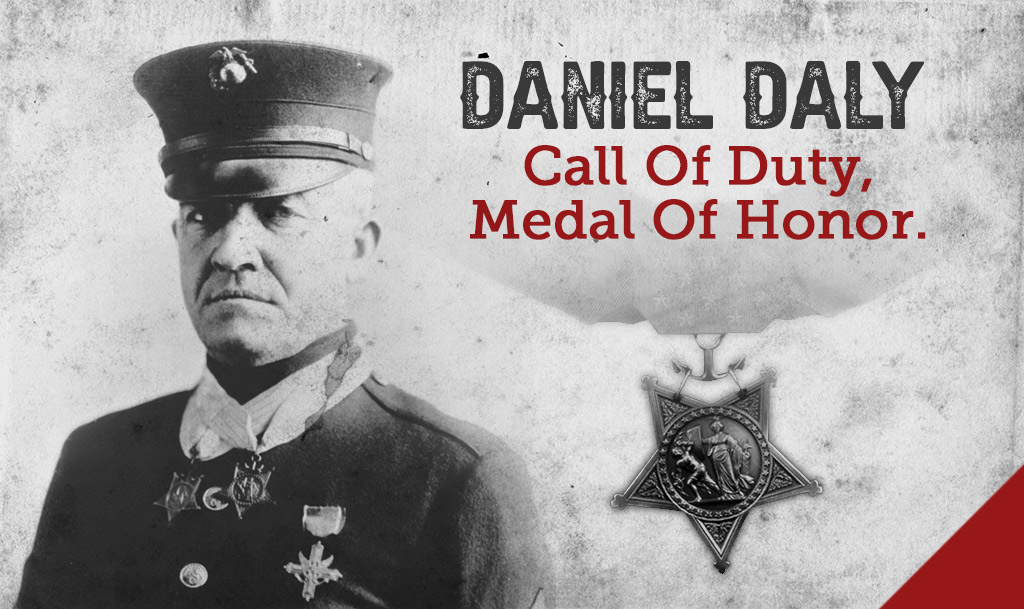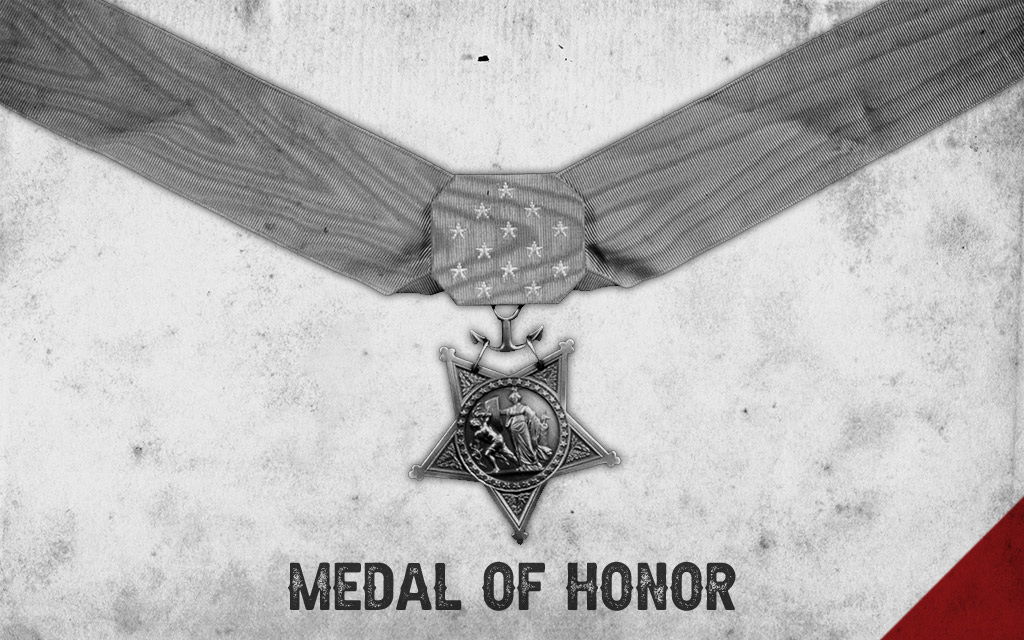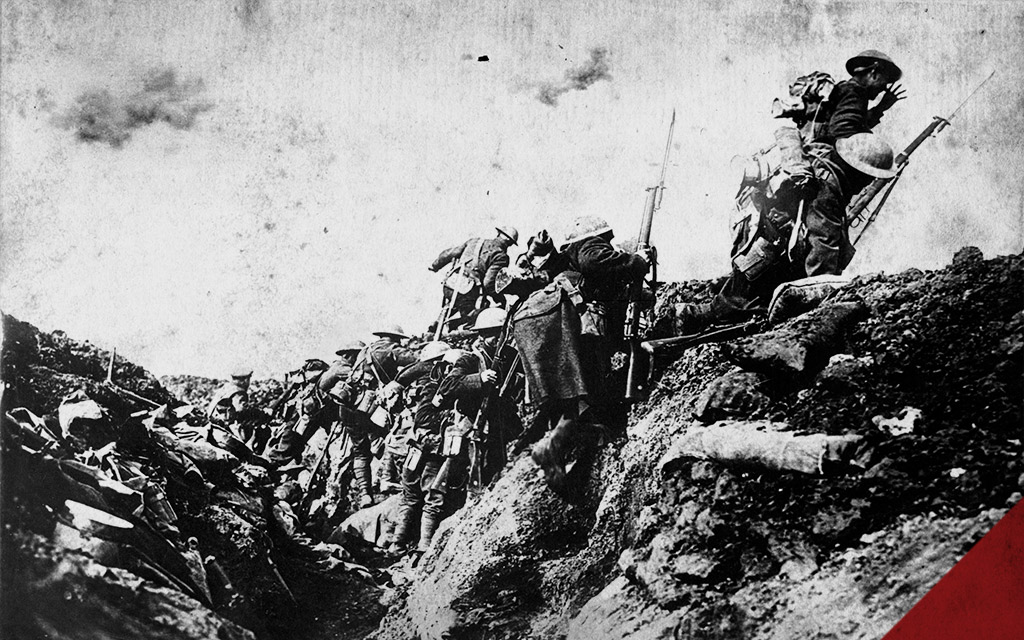

The United States awards the Medal of Honor to a select few. It’s for those displaying “conspicuous gallantry and intrepidity at the risk of his life above and beyond the call of duty.” It’s the highest medal for valor in combat that members of the armed services can earn. The long history of the Medal of Honor began in 1861. Only nineteen men (seven of whom were U.S. Marines) have received the medal twice. Daniel Daly is one of them.
One of those Marines was Sergeant Major Daniel Daly. He is one of only two marines to accept the Medal of Honor twice for separate acts of heroism. He received a nomination for a third, though it never materialized due to bureaucratic technicality. Daly accepted the Navy Cross, Distinguished Service Cross, Citation Star, and France’s Croix de Guerre and Medaille Militaire before the end of his stellar military career.
We don’t know much about Daly’s pre-military life. He was born in Glen Cove, Long Island, New York, on November 11, 1873. He was only 5’ 6” tall and weighed 132 lbs. But despite being physically undersized, he gained a reputation as a fearless fighter and became an exemplary U.S. Marine.
Daniel Daly’s First Medal Of Honor

Only nineteen men have received the medal twice, Daniel Daly is one of them.
Wanting to test his fighting skills, young Dan Daly enlisted in the Marine Corps on January 10, 1899. He was hoping to get into the Spanish-American War. The war thwarted his plans by ending before he finished boot-camp training. Instead, in May 1900, he received orders to board the USS Newark and went to Taku Bay, China.
Daly landed with other Marines who would become part of the U.S. Embassy Guard in Peking. After the Boxer Rebellion broke out in 1900, the Boxers, attempting to drive all foreigners from China, surrounded the compound of the foreign legations in Peking.
As they laid siege to it, German Marines defending the German embassy were forced back, prompting Daly to take a position in a bastion on the Tartar Wall. Although he suffered several attacks and sniper fire, he remained alone and held his position throughout the night.
When someone came to relieve Private Daly in the morning, he still held his position. The many bodies of attackers surrounding the wall testified to his bravery and earned him his first Medal of Honor.
Second Medal Of Honor In Haiti
Fifteen years after the Boxer Rebellion, Gunnery Sergeant Daly was in Haiti fighting with U.S. forces defending the Haitian government against rebels. On October 24, 1915, he was with a reconnaissance company of around forty men. Suddenly, 400 Haitian insurgents ambushed them as they crossed a river at night.
The mule carrying the company’s machine gun got hit and died. Daly positioned his men and returned to find it. Searching by himself under intense enemy fire, he found the gun and ammo and brought them back to the Marine position.
Daly then led one part of a three-pronged assault on the rebel position, killing 75 rebels and dispersing the rest. One of the officers observed: “Had one squad failed, not one man of the party would have lived to tell the tale. Gunnery Sergeant Daly, 15th Company, during the operations was the most conspicuous figure among the enlisted men.”
Daly received his second Medal of Honor for his actions in this engagement. The incident later became known as the Battle of Fort Dipitie.
Daniel Daly: Time to Retire?

The Battle of Belleau Wood would prove to be one of the most ferocious battles fought by American troops during WWI.
You might think that 44-year-old Daly would be content with his military accomplishments when World War I broke out. After all, his service resume had become complete and diversified. It included sea duty aboard the USS Newark, Panther, Cleveland, Marietta, Mississippi, Ohio, and Machias. He saw combat in China, Haiti, and France and served in Panama, Cuba, Mexico, Puerto Rico, and eight posts in the US.
But he was far from finished. Daly participated in combat in the Toulon Sector, Aisne Operations, and Battle of Belleau Wood during the Great War. During this operation, he risked his life to extinguish an ammunition dump fire. Two days later, the same sector was under heavy bombardment. Daly went to all the company’s machine gun crews, encouraging them.
On 10 June, he single-handedly assaulted an enemy machine gun nest. He received three wounds but captured it with just hand grenades and his .45 automatic pistol. That same day, he brought in some wounded men under intense fire during an enemy attack on the village of Bouresches.
Who Wants To Live Forever?
Despite the many acts of bravery Sergeant Daly performed, the episode for which he’s best remembered occurred during the Battle of Belleau Wood. A heavy artillery barrage pinned down Daly and his Marines. At one point, the first sergeant led a counter-attack with a battle cry that has since become a Marine legend:
Come on, you sons of bitches, do you want to live forever?” – Daniel Daly
Although Daly received a recommendation for a third Medal of Honor, bureaucratic politics reared its ugly head. Someone decided the Medal of Honor should not go to the same person more than twice, regardless of how deserving their acts of bravery were. Daly did not get a third Medal of Honor based on this technicality. Instead, he received the Distinguished Service Cross, the Navy Cross, and France’s Médaille Militaire.
Daly would later serve in the St. Mihiel Offensive and the Champagne Offensive, where he was wounded multiple times. He would later serve with the American Army of Occupation in Germany following the Armistice in 1918.
Major General John A. Lejeune, the former Commandant of the Marine Corps, once called Sergeant Major Daly, “The outstanding Marine of all time.” Major General Smedley D. Butler named him, “The fightinest Marine I ever knew.” Marine officers and enlisted men expressed similar sentiments, and with good reason.
Daniel Daly, A Life Well-Lived

Daniel Daly is buried at Cypress Hills National Cemetery in New York.
On February 6, 1929, Dan Daly placed his rifle in the gun case and received a hero’s parade. The parade route went from Bedford Ave. to the Williamsburg Plaza in Brooklyn, honoring his highly decorated military service. From there, he took a job as a bank guard on Wall Street, holding that position for 17 years.
Sergeant Major Daly never married. He reportedly said, “I can’t see how a single man could spend his time to better advantage than in the Marines.” Daniel Joseph Daly died on April 27, 1937, at the age of 64. He left a legacy that remains unmatched in the records of Marine Corps history.


